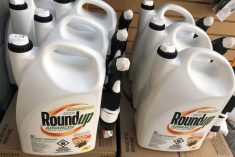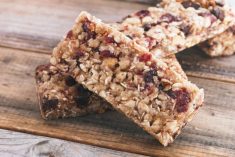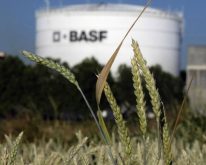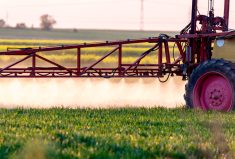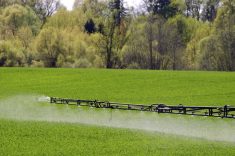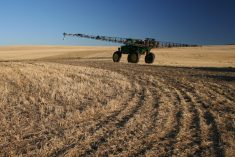Bogota | Reuters — A judicial ban on aerial spraying of glyphosate herbicide to eliminate coca crops should be modified, Colombia’s President Ivan Duque said on Thursday, because expansion of the crop since the ban threatens peace efforts.
The Andean country suspended aerial fumigation of coca, the raw ingredient in cocaine, with the Monsanto herbicide in 2015 after the World Health Organization linked glyphosate to cancer. The decision was later backed by the Constitutional Court.
But at a hearing Thursday, Duque said greater production of coca in the wake of the decision was threatening to derail efforts to end more than five decades of conflict.
Read Also

India slaps 30 per cent import duty on yellow peas
India has imposed a 30 per cent duty on yellow pea imports with a bill of lading date on or after Nov. 1, 2025.
“My respectful request is to modify the ruling, a modification that takes into consideration these serious effects,” Duque told the court, which is considering the case but has not set a date to rule on possible changes.
“This expansion of crops really has done tremendous damage to constitutional order, to legal order, to the environment, to territorial security and to the protection of fundamental rights.”
Colombia has long been ranked as the world’s top producer of cocaine, and figures compiled by the United Nations for 2017 showed the largest potential output since the organization’s record-keeping began, with production of the drug at 1,379 tonnes.
Manual eradication is expensive and less effective than aerial fumigation, Duque said, and the government needs all tools at its disposal.
Manual eradication puts military personnel at risk of landmines and sniper shootings, and can only eliminate between two to three hectares of coca per day, Duque said.
Aerial fumigation can destroy 120 to 150 hectares per day and costs 2.6 times less, he said.
“We cannot reject any tools,” Duque said. “The exponential expansion of illicit crops threatens the construction of peace in our country.”
Duque added his government has eradicated more than 80,000 hectares since he took office in August, but those hectares were at constant risk of being replanted.
“I’m not coming to ask for a blank cheque, I’m not coming to minimize any risk, I’m coming to say that this government has the responsibility, the conviction and the desire to integrate all the tools,” he said.
Chemicals and gasoline are being leeched into the Amazon in southern Colombia because of coca cultivation, Duque said.
The United States, Colombia’s top ally, has repeatedly expressed concern about the rise in coca output.
A 2016 peace deal between Colombia and one group of leftist rebels includes funding meant to encourage farmers to replace coca.
— Reporting for Reuters by Julia Symmes Cobb.



